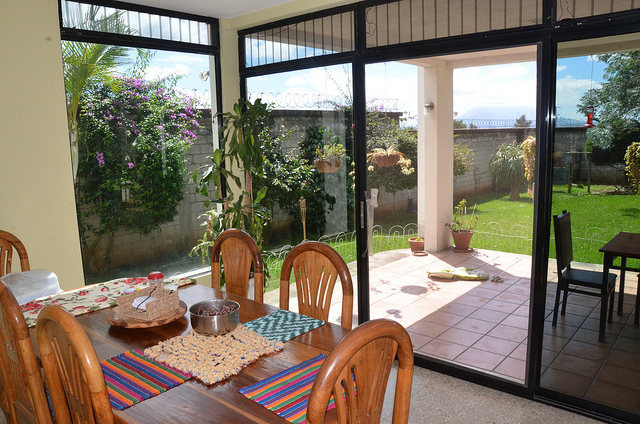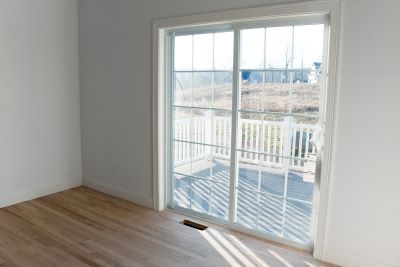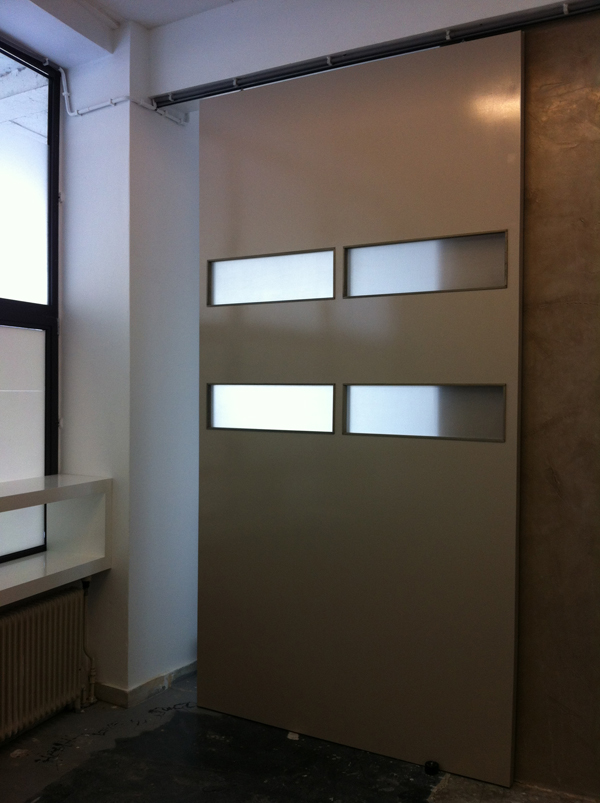No products in the cart.
Best Ways to Soundproof Your Sliding Doors

14
Jul
Many home designs incorporate sliding doors. They’re often desired for the openness they create in a room and the great view they give to the outdoors. However, sliding doors have their downfalls, primarily the inability to effectively block sound coming in above and around the doorway. Whether you have a noise source on the other side of a barn door, sliding glass door, or a closet door, you understand the frustration that comes along with the utility. Follow our instructions below to determine the most cost-effective way to soundproof sliding doors today.
See Also: Soundproofing Pocket Doors
Basics to Soundproof a Sliding Door
The reason sliding doors are often ineffective at blocking sound compared their standard counterparts is flanking. As we’ve discussed, flanking is the transmission of sound around a particular partition, such as gaps around doors or holes in a wall. Sliding doors often have an STC (Sound Transmission Class) value that is several points lower than standard doors, and soundproof sliding doors are basically nonexistent, leading many customers looking for soundproofing options after installation.

Glass doors are notoriously bad at blocking sound because glass has such a low STC rating. However, if you choose to soundproof your sliding glass doors with soundproof curtains, you can lose natural light and your view if you have a nice one.
How To Soundproof a Sliding Glass Door
Sliding Glass Doors are the number one culprit for noise complaints that we receive. Very common in multi-family developments, they provide a view of the exterior, but in return, let in significant exterior noise. To make matters worse, since they are constructed with glass, the STC values are generally below 30 STC points, meaning that the majority of noise from outside is coming through the sliding glass door rather than the adjacent walls.
Similar to “double hung windows”, there is also additional sound leaking where the 2 sliding glass panels interface. When attempting to improve the sound blocking of the sliding glass door, try two primary techniques:
- Decrease Flanking by upgrading the gaskets and seals along the perimeter of the door
- Soundproof the Assembly by hanging a soundproof drape over the sliding door. This will increase the mass of the door, while also minimizing the flanking.
Soundproofing drapes can act as an aesthetic, yet functional way to soundproof your sliding glass doors. While you may lose your view every time you need to close the drapes up, they’re decorative enough to keep the room looking nice.
How To Soundproof a Sliding Closet Door
Also known as a “Pocket Door”, and installed in openings to closets, laundry rooms, and bathrooms, these doors have several soundproofing issues. One is that sound can easily flank around the pocket itself. Because they are interior doors, no weather stripping is used, which is often the primary sound gasket for exterior doors.
While they are excellent for privacy and don’t require the swinging arc space of a standard interior door, they will leak sufficient noise from the inside.
Just like soundproofing a regular door, consider upgrading the door panel itself from hollow-core to solid-core. Furthermore, you may be able to install door seals and sweeps around the perimeter of the door to minimize flanking at top and bottom.
For interior doors, soundproofing blankets may be hung directly over the doorway to further decrease the sound from within. Soundproof blankets can improve the sound-blocking of a doorway by 80-90%.

Gaps around the sides of sliding barn doors create sound flanking paths. Consider using a soundproofing curtain to reduce noise transfer through and around the sliding doors.
Soundproofing a Sliding Barn Door & Other Interior Sliding Doors
With sliding barn doors and other interior sliding doors, sound flanking, or leaking, is very common. This often occurs at the top, where the door is not gasketed, and allows sound to pass directly overhead.
Once the flanking is treated, which is the primary sound path on the majority of barn doors, you may also consider backing the barn door with a mass loaded vinyl barrier. These may be adhered or nailed into the structure to add extra mass.
Similarly to the sliding glass door, soundproof drapes are a consideration as well. Due to the hardware on a sliding barn door, it’s important to note that any soundproof drape would need to be hung on the opposite side of where the door is mounted.
Soundproofing a Sliding Door in Your Home
At the end of the day, soundproofing a sliding door is often dependent on two primary factors –
- Increasing the mass of the doorway assembly
- Minimizing the amount of sound that can easily pass around the door
Depending on the type of sliding door (interior or exterior), flanking is significantly different. Exterior doors have weather stripping to keep out bugs and water, and consequently results in less flanking. Interior doors, on the other hand, have big gaps at the threshold and around the perimeter, allowing excess noise to transfer around the door.
By treating both transmission paths, you may greatly improve the STC rating and soundproof your sliding door.
